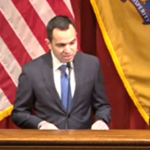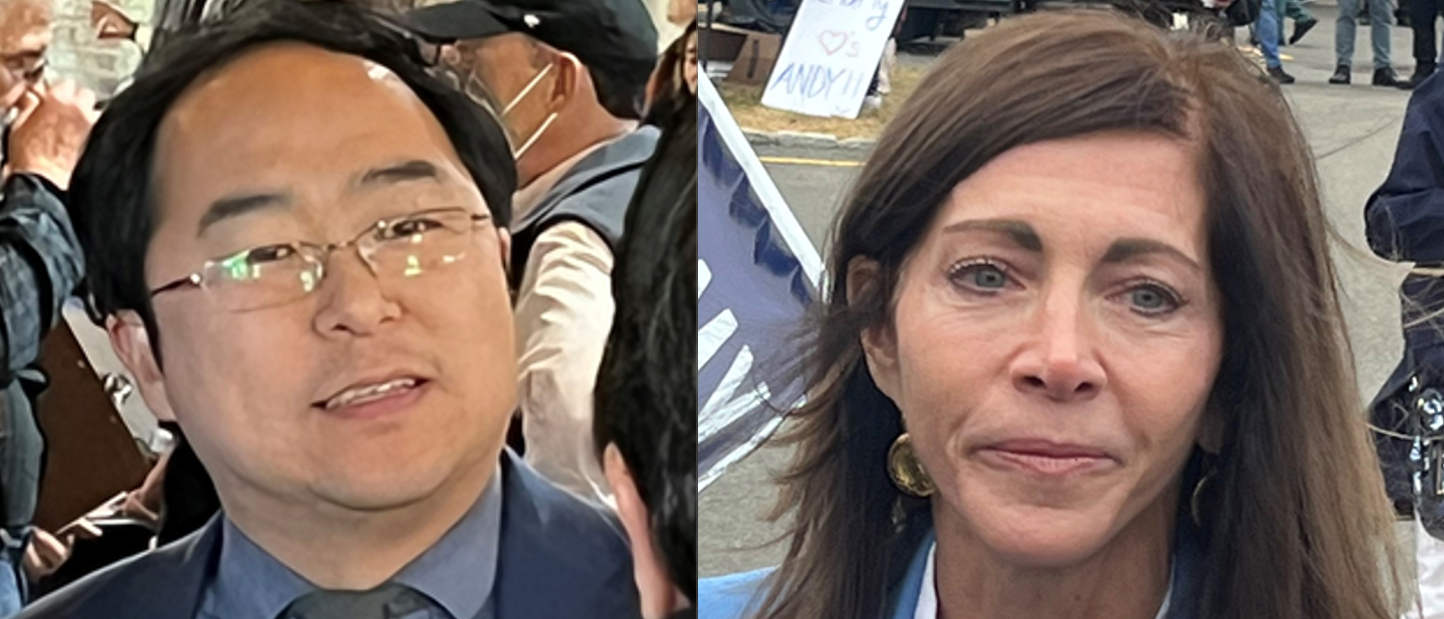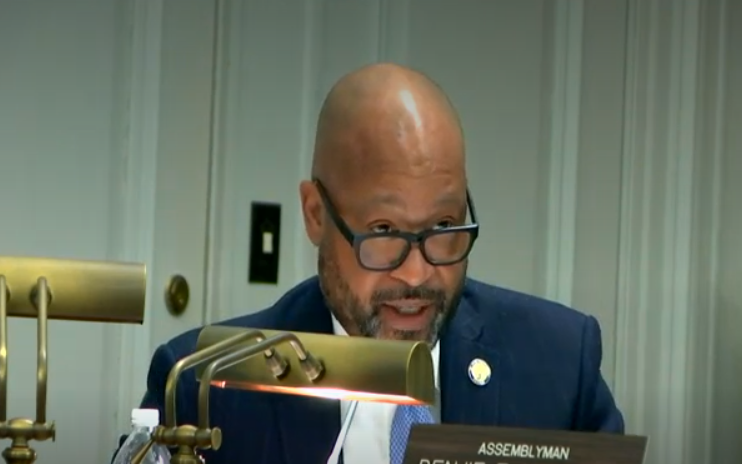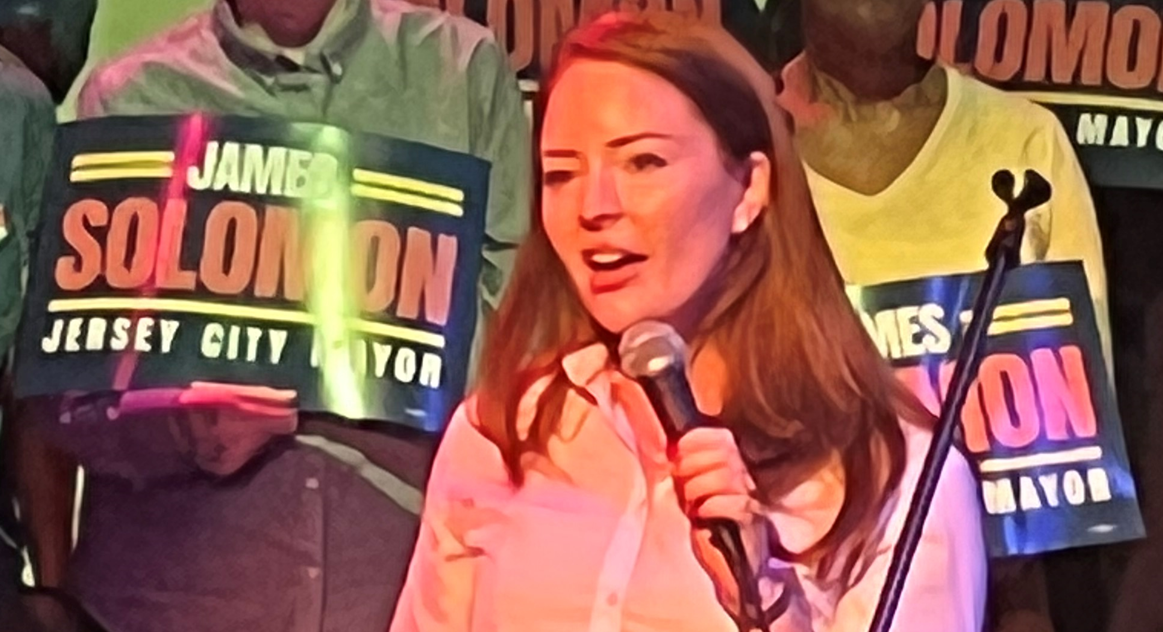Expectation of a federal judge’s ruling against ballot structuring that protects the county party primary line in New Jersey sent insiders into a backroom frenzy on Monday, as they felt more urgently the drag downward into a colossal establishment mudslide.
The cold sweat started on Sunday, when Attorney General Matt Platkin sent Judge Zahid N. Quraishi a letter notifying him that his office will not defend the three state statutes that prescribe how New Jersey designs its primary ballots.

Why would Platkin, a top member of the administration of Governor Phil Murphy, send that letter, which hurts Murphy’s wife, First Lady Tammy Murphy, candidate for U.S. Senate, who possesses 62% of the county party lines in her primary with upstart U.S. Rep. Andy Kim, who filed the lawsuit. That backing gives her a distinct advantage.
Ahead of the judge’s ruling, Platkin offered his own professional opinion, which gave him a radiant independent gleam amid all the standard overcoat toadyism of New Jersey public office:
“Conditions have subsequently altered the real-world impact of those statutes. For most of the twentieth century, including when the bracketing law was first enacted, L. 1941, ch.163, § 1, New Jersey prohibited political parties from endorsing primary candidates. …But in 1989, the Supreme Court held such primary endorsement bans unconstitutional.”
So, it’s the law, stupid, or so said Platkin, even as backroom chatter persisted about his “angle.” Sources to a person said Platkin simply acted professionally and independently but even a few establishment types sniffed around for “the real reason” for his opinion, suggesting Tammy Murphy’s imminent pullout from the Senate contest in light of her less than stellar showing at county party conventions, and the fact that she just got smoked in Morris County.
“Matt was just trying to get ahead, knowing there’s nowhere for Tammy to go,” offered one suddenly discombobulated insider.
He was wrong.

Tammy Murphy, in fact, intends to pursue her run for the United States Senate, according to two well-heeled sources in the inner sanctum of the caravan. She’s going to duke it out with Kim, regardless of what the ballots look like, the sources added, and expressed confidence in her establishment organization and resource advantages.
But as longtime Essex County Democratic Party stalwart Sheriff Armando Fontoura exited his own reelection bid today, stunned party players tried to figure out where it will all lead once Quraishi issues his ruling, presumably against their primary organizational ballot clout.
First, some division exists behind the scenes within the establishment between those who want a vigorous appeal and those – like Platkin – who say, “It’s over. Time to move on. No reason to challenge.” Legal precedent exists for an argument in favor of the lines, sources insist, and they will fight – but no one says he or she plans to fight to the death, even as others point to the overwhelming ballot precedent of 49 other states.
Second, people in politics began to try to figure out what this will mean mechanically. How will new primary ballots, devoid of the county party lines, work? As it currently operates, candidates bracket with party organizations, to form solid monopolies for prime ballot position, consigning those off the party organization line – in Platkin’s words – to ballot Sibera. New ballots would require candidates for a specific office to draw for position within an isolated section, separate from other sections containing candidates for other offices, who would have their own drawing for position.
Stil confused?
As it is now, a county organization puts forward a primary line that looks like this:
Pick One:
President: Joe Biden, Democratic Organization Slogan
Senate: Tammy Murphy, Democratic Organization Slogan
Congress: Donald Payne, Jr., Democratic Organization Slogan
Sheriff: Armando Fontoura, Democratic Organization Slogan
And so on, with all the organization-backed candidates stacked below, forming a solid organizational block.
Challengers, meanwhile, especially those unbracketed with other candidates seeking other offices, might find themselves floating somewhere else on the ballot like a solo polar bear on an ice flow.
If the judge rules as sources say he will, and opines – as Platkin did – the unconstitutionality of New Jersey’s primary bracketing system, block balloting will probably resemble something like this:
For President: Voters will see these candidates blocked together, with accompanying slogans, but on their own terms, unbracketed with the other candidates running for office with the same party slogans.
For Senate: A separate block will contain these candidate names, with their placement in that block a consequence of these candidates’ own ballot position drawing, separate from the first blocked group.
Random drawing for each individual office.
And so on. Again, it’s early – and the judge’s opinion unrendered, for that matter – but accelerated discussions focus on the implications. Some tried to take the coming decision in stride. “It will still add up to an advantage for incumbents, because, let’s face it, they have the name ID,” said a source, even as others tried to ascertain the longer-term impact on organizations, and especially the bosses of those organizations, used to controlling primary candidates on the party line. One source put it like this: it will create more competitive primaries, because the lines won’t have an outsized ballot advantage, and it will enable elected officials to become more independent and more accountable to the voters. Candidates and organizations will – at the very least – have to work harder, one source said – to prove public – not just private – relevance.
EDITOR’S NOTE: One more thing, for now – as to timing, the federal courts could decide that the new rules – if indeed the judge so rules – must be implemented for this election or future elections.
Could be now, as in this election cycle (Kim v. Murphy), or later (Gov 2025).
Right now, we don’t know.
More later.
(Visited 377 times, 385 visits today)
As the deadline for ballot rulings in New Jersey approaches, politicians in the state are feeling the pressure. The ruling, which will determine which candidates will appear on the ballot for the upcoming election, is a crucial step in the campaign process. With so much at stake, politicians are understandably nervous about the outcome.
The ruling, which is set to be announced in the coming days, will have a significant impact on the upcoming election. Candidates who are not included on the ballot will have a much harder time getting their message out to voters, potentially putting them at a disadvantage in the race. This is especially concerning for incumbents who are facing tough reelection battles, as being left off the ballot could spell disaster for their chances of retaining their seat.
In addition to the potential impact on individual candidates, the ruling could also have broader implications for the political landscape in New Jersey. If certain candidates are excluded from the ballot, it could shift the balance of power in key races, potentially changing the outcome of the election. This uncertainty has left many politicians on edge as they await the ruling.
One of the main reasons for the nervousness surrounding the ballot ruling is the lack of clarity around the criteria that will be used to determine which candidates make the cut. While there are guidelines in place, there is still a great deal of subjectivity involved in the decision-making process, leaving candidates unsure of where they stand.
Despite the uncertainty and anxiety surrounding the ruling, politicians are doing everything they can to ensure that they are prepared for whatever outcome may come. They are working tirelessly to get their message out to voters and make their case for why they should be included on the ballot. In the meantime, they are left to wait and hope that the ruling will be in their favor.
Overall, the upcoming ballot ruling is a major source of stress for politicians in New Jersey. The outcome of this decision could have far-reaching implications for the upcoming election, making it a pivotal moment in the campaign process. As they await the ruling, politicians are doing everything they can to stay focused and prepared for whatever may come their way.



